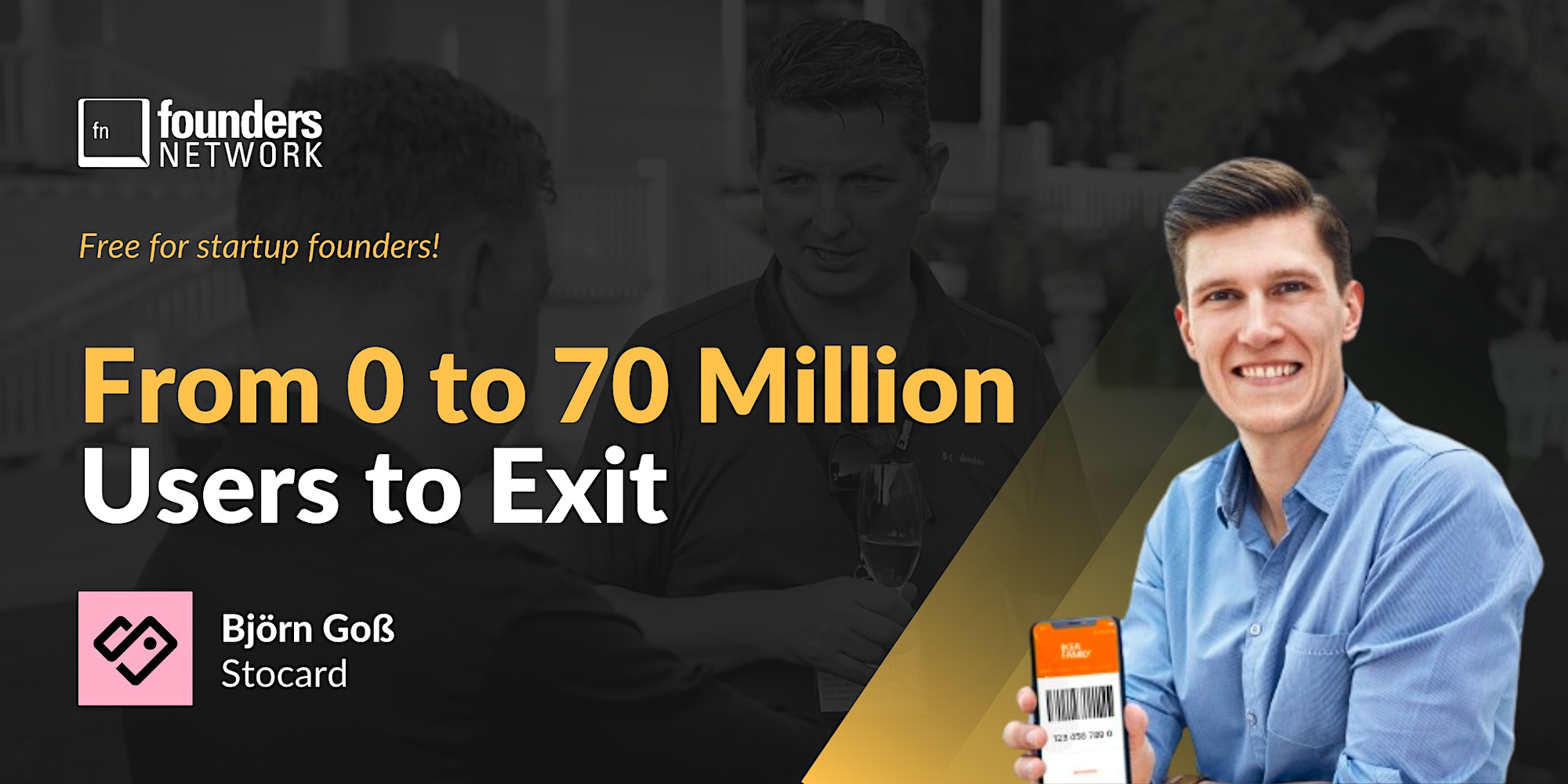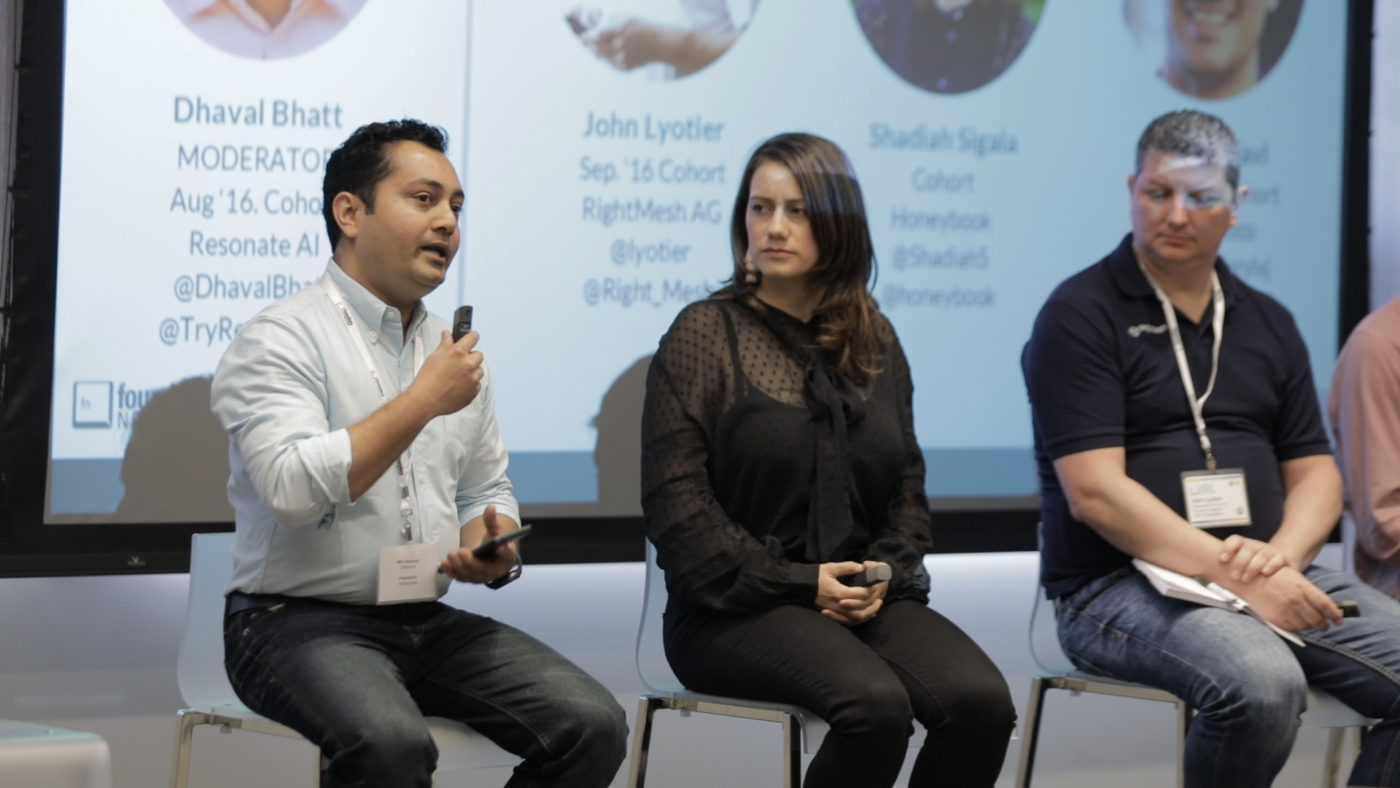
To learn more about how Björn Goß built Europe’s leading mobile wallet, click here to watch the global keynote.
Björn Goß came into entrepreneurship as many do – with an idea ready to disrupt the way customers do business.
The year was 2011 and Björn had just finished his bachelor’s degree at the University of Mannheim in Germany. He and his friend David Handlos were exploring what the next chapter of their life might look like and spitballing ideas for their own venture.
“David’s girlfriend had the problem of carrying around 20 different plastic cards which was pretty clunky. All people were talking about in relation to mobile wallets were payments. We said ‘Well actually it should be way beyond pure payments and focus on the whole shopping journey including loyalty cards, coupons, gift cards, mobile payments and more,’” says Björn.
It was then that the early vision for Stocard – an app that allows users to declutter their wallets by organizing all their loyalty cards into one central location – was created.
Fast forward 12 years and 70 million users and Björn’s startup has become Europe’s leading mobile wallet. The company was acquired in a €140 million deal by Klarna in 2021.
In a global keynote for Founders Network on January 16, Björn detailed the story of how he built a successful fintech company and his tips for finding product-market fit.
His keynote covered:
- How to find your product market fit
- Strategies for scaling internationally
- Methods to use to build a successful advertising model
- Scaling to 70 million users and exiting a company
Taking A Leap of Faith
In 2011 Björn moved to London where he earned his master’s degree. The following year, he started working at McKinsey & Company as a consultant. However, that position turned out to be short lived.
In a turn of events, during the same months he was at McKinsey, the Stocard App – his side hustle – skyrocketed from zero to 50,000 users. He quit his coveted McKinsey gig three months in to pursue the growth of his app. The first order of business was to continue to grow the app’s user base while aiming to catch the eye of early investors.
“Talking with VC firms was challenging at first. They understood ordering a taxi through an app since they rode a lot of taxis themselves But when you talked about shopping with them, they were like, ‘Who the heck cares about saving 10% on groceries,’” shares Björn.
By 2012 Stocard had taken over the news. The app boasted a user base of half a million and the concept soon became convincing for a few early funders.
“We raised $850,000 in our seed round. And then we built a small team and continued growing,” shares Björn.
Follow Your Users’ Lead
As the Stocard team grew its user base, they noticed an opportunity in their user retention rates. Initially, less than one-third of users returned after their first month of use. While this was trending well by industry standards, the team wanted to do better.
Over the course of the following year, the team of around 10 people devoted all of their attention to achieving product-market fit right. They started by understanding the difference between users who returned and those who didn’t. Following a deepening of their customer understanding and developing new ways to engage customers, the team increased retention to over 50 percent.
Stocard’s momentum grew.
“We further increased the retention to 70%, but also grew from 1 million to 2 million..5 million all the way up to 70 million in 2021,” says Björn.
Next, in 2013 the team moved into monetization and started to talk to retailers directly about what they want and how they see the world. They then built an advertising solution to meet the market.
Ultimately, the team’s dedication to understanding both customer and partner insights enabled them to build one of Europe’s most successful apps.
Follow Your Intuition
The success of Stocard taught Björn several lessons about what it takes to be an entrepreneur. However, the biggest lesson was about the value of having the right startup team.
“My lesson to share is a very boring one. My advice for other founders is to remember that the team is always more important than the individual,” shares Björn. “And if you have a toxic person in the team that is maybe a great individual contributor, you should probably act and you should act very quickly and let the person go as fast as you can.”
To learn more about how Björn Goß built Europe’s leading mobile wallet, click here to watch the global keynote.






